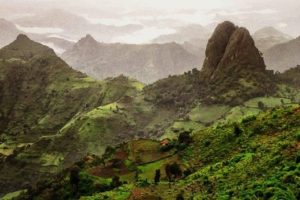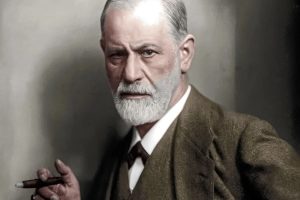
(A versatile Ethio-Italia artist staging songs in 7 local languages too)
BY NAOL GIRMA
The all-rounded and gifted artist Gabriella Ghermandi is a singer, performer, novelist and short-story writer. She was born in Addis Ababa in 1965 to an Italian father and Ethiopian mother. She is brought up here in Piassa.
Simultaneous to her writing, Gabriella Ghermandi has been building a considerable reputation as a performer of narratives adapted from Ethiopia’s oral and musical tradition. More often her readings are accentuated by Ethiopian music and songs. They revolve around a series of historical events. Her musical works had had excellent reviews in the international press and on various radio programs. They have been widely heard and enjoyed in Ethiopia, with presentations on radio, television, and social media.
While she was here in connection with the MAQUEDA concert held on 7 February at the Italian Cultural Institute, The Ethiopian Herald had intercepted her for interview with the intention of acquainting esteemed readers about her personal and professional life. She has touched upon a broad-array of ideas, feelings and thoughts.
Would you brief us about Gebriella Ghermandi?
I grew up in a world filled with different sounds: Ethiopian, Italian, Congolese and Indian. My mother used to manage a clothing store in Addis Ababa, in the main street of the Piassa neighborhood. Next to her store there was a music store run by a Greek woman: Maria Teresa Kiskas. She sold instruments, record players, 33 and 45 rpm records.
In Maria’s store I listened to the Beatles, Zorba and Rebetika Greek music. On my way home I would listen to different kind of music, that of our singers, the Azmari. When I finally reached home the radio was always on when my father, who could not stand Ethiopian music, was not there. He used to describe it as a continuous lament. But we loved it, and along with my neighborhood girlfriends I danced to the tune.
I also listened to Italian singers: Domenico Modugno whom my father loved and then more modern bands like the Banco del Mutuo Soccorso and the Premiata Forneria Marconi or singers like Lucio Battisti. This was the music my Italian classmates loved. In addition, I listened to our friend Geraldine’s favorite Congolese music and the Indian music of my Kashmiri neighbors, of course Bob Marley, and also Genesis.
Finally there were the war songs. I did not like them during those days. I used to go with my cousins to see the parades celebrating the anniversary of our victory at Adwa and the liberation from the Fascist occupation, just to laugh at the gestures of the warriors singing those war songs.
When they opened their eyes wide, brandishing their swords and shields and when they shouted threats to their enemies. I used to find them ridiculous. In those days I would have considered anyone crazy who told me that one day I would recall our valorous patriots by imitating their gestures on the stages of theaters in Italy and around the world to remember our elders that fought for freedom.
I believe music needs engagement. There is no music just made to be performed. Music is a way of taking place and giving volume to unexpressed voices. Music does not mean politic but goes into politics, into building society, into one’s life. Music is a way of giving the vision of a possible or impossible future.
What are the themes of your literary works? How come you become versatile or multidisciplinary artist?
The themes of my literary works are focused on Ethiopia because I came to Italy when I was a teenager. I was nostalgic about Ethiopia so much. I missed many things. So I tried to create my Ethiopia on the paper in a form of short stories. Then I began to think about our forefathers. And I started writing about the Ethiopian struggle against the Italian occupation. As such, what I basically write is focused on the culture of Ethiopia to throw light on it. It must be known that we Ethiopians have a very important history. A lot of story has to be told.
What was the concert (album presentation) about? Who organized it?
Our concert was organized by the Italian Cultural Institute here, Italian Embassy in Addis Ababa and Region Emilia—Romagna region. The objective of this concert was to promote the only existing Italio-Ethiopian band that we are running in the name of Atse Tewodros Project. Making a paradigm shift we want to foreground female figureheads. Once, I noticed even some sponsoring international organizations were less observant of this fact.
Could you brief us about the story of Maqeda and Atse Tewodros Project?
Maqeda is the Ethiopian name of the Queen of Sheba, who according to the epic legend of Ethiopia went to the court of the Emperor Solomon to propose a challenge on mutual knowledge. And Maqeda is the name chosen for my new project, dedicated to female figures. The project aims to “universalize” the myth of the Queen of Sheba and of the other figures of Ethiopian history and mythology, and bring them out in experience of women, men and girls of different origins who will participate in the writing and serigraphy printing laboratories foreseen by the project itself.
Atse Tewodros Project is composed of a group of Italian and Ethiopian musicians born out of the idea of the Italian-Ethiopian singer, performer, and writer Gabriella Ghermandi. It is a unique project as it is the only Italian-Ethiopian band in existence.
The project takes as its symbol Emperor Tewodros, a man who was not of imperial lineage, but who managed to gain the throne through willpower and charisma, breaking with centuries of custom. He was the first Emperor who gave Ethiopia the chance to modernize while respecting its traditions The ensemble intends to respect traditional Ethiopian music by opening it to dialogue and exchange. The group creates pieces of local music with jazz inserts, reworking it according to the traditions – very unknown abroad – of different ethnic groups in the country and performing songs in 8 different languages.
In 2022, Atse Tewodros Project recorded the second album “Maqeda” (Ethiopian name of the Queen of Sheba), entirely dedicated to the female figures of Ethiopian history and mythology and to the rituals of the ethnic groups that have women at the center. The album is the result of painstaking ethno-musicological research in Ethiopia.
In addition to some original songs such as “Lucy” (dedicated to the first hominid), in the program of the concert in Addis Ababa, which will present the new album for the first time, some pieces of the Italian singing tradition will also be performed, inserting Ethiopian musical instruments (masinko, washint, kirar). That will be an innovative exchange, given that up to now the ensemble has performed only with original pieces, inspired by the Ethiopian tradition.
In 2010, in an effort to bring together Italian and Ethiopian musicians as a way of fostering mutual dialogue and artistic creation, she created the Atse Tewodros Project. This project got its start in Addis Ababa, growing out of the collaboration between Ethiopian composer Aklilu Zewdy and Professor Berhanu Gezaw.
Atse Tewodros was the emperor who modernized Ethiopia while respecting its traditions. He was also the emperor who fought against Queen Victoria’s army and defended Ethiopian independence in the century of African colonization.
In December 2013, the Atse Tewodros Project recorded their first CD. It includes nine songs by Gabriella Ghermandi, Aklilu Zewdie, Inish Hailu, and Berhanu Gizaw. These are musical pieces in which the modes and pentatonic scales of traditional Ethiopian music, with traditional Ethiopian instruments, are combined with European instruments played in ajazz style.
The Atse Tewodros Project also includes songs from the Ethiopian Resistance that fought against the Italian Fascist regime. This is its way of reclaiming the past, both for the general public and for each individual, a way to describe the course of human and migrant lives and to talk about plural identities.
Her musical project is also the winner of the International Expo competition “Energy, Art & Sustainability for Africa”, launched by Expo Milano 2015 selected out of the 41 received, and was in the ballot of the 59° Grammy Awards.
The Ethiopian Herald February 22/2023





